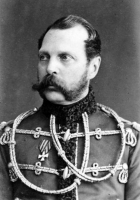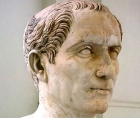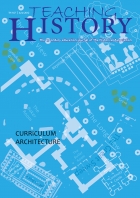General
When considering your planning there are several questions you will need to consider: Read more
Sort by:
Date (Newest first) | Title A-Z
Show:
All |
Articles |
Podcasts |
Multipage Articles
-

'...trying to count the stars': using the story of Bergen-Belsen to teach the Holocaust
ArticleClick to view -

Competition and counterfactuals without confusion
ArticleClick to view -

Designing an enquiry in a challenging setting
ArticleClick to view -

Triumphs Show 148.2: using pupil dialogue to encourage engagement with sources
ArticleClick to view -

Out went Caesar and in came the Conqueror: A case study in professional thinking
ArticleClick to view -

Hidden histories and heroism: post-14 course on multi-cultural Britain since 1945
ArticleClick to view -

Cunning Plan 147: Getting students to use classical texts
ArticleClick to view -

Teaching History 147: Curriculum Architecture
ArticleClick to view -

A hankering for the blank spaces: enabling the very able to explore the limits of GCSE
ArticleClick to view -

Does the linguistic release the conceptual? Helping Year 10 to improve their casual reasoning
ArticleClick to view -

The teaching and learning of history for 15-16 year olds: have the Japanese anything to learn from the English experience
ArticleClick to view -

Stretching the straight jacket of assessment: use of role play and practical demonstration to enrich pupils' experience of history at GCSE and beyond
ArticleClick to view -

Getting Year 10 to understand the value of precise factual knowledge
ArticleClick to view -

'Now listen to Source A' : Music and History
ArticleClick to view -

Drop the dead dictator: a Year 9 newsroom simulation
ArticleClick to view -

Triumphs Show 103: Using active learning to motivate GCSE groups
ArticleClick to view -

My essays could go on forever: using Key Stage 3 to improve performance at GCSE
ArticleClick to view -

Doomed Youth: Using theatre to support teaching about the First World War
ArticleClick to view -

Denis Shemilt's four stages of adolescent ideas about historical methods in a nutshell
ArticleClick to view -

Emotional response or objective enquiry? Using shared stories and a sense of place in the study of interpretations for GCSE
ArticleClick to view

